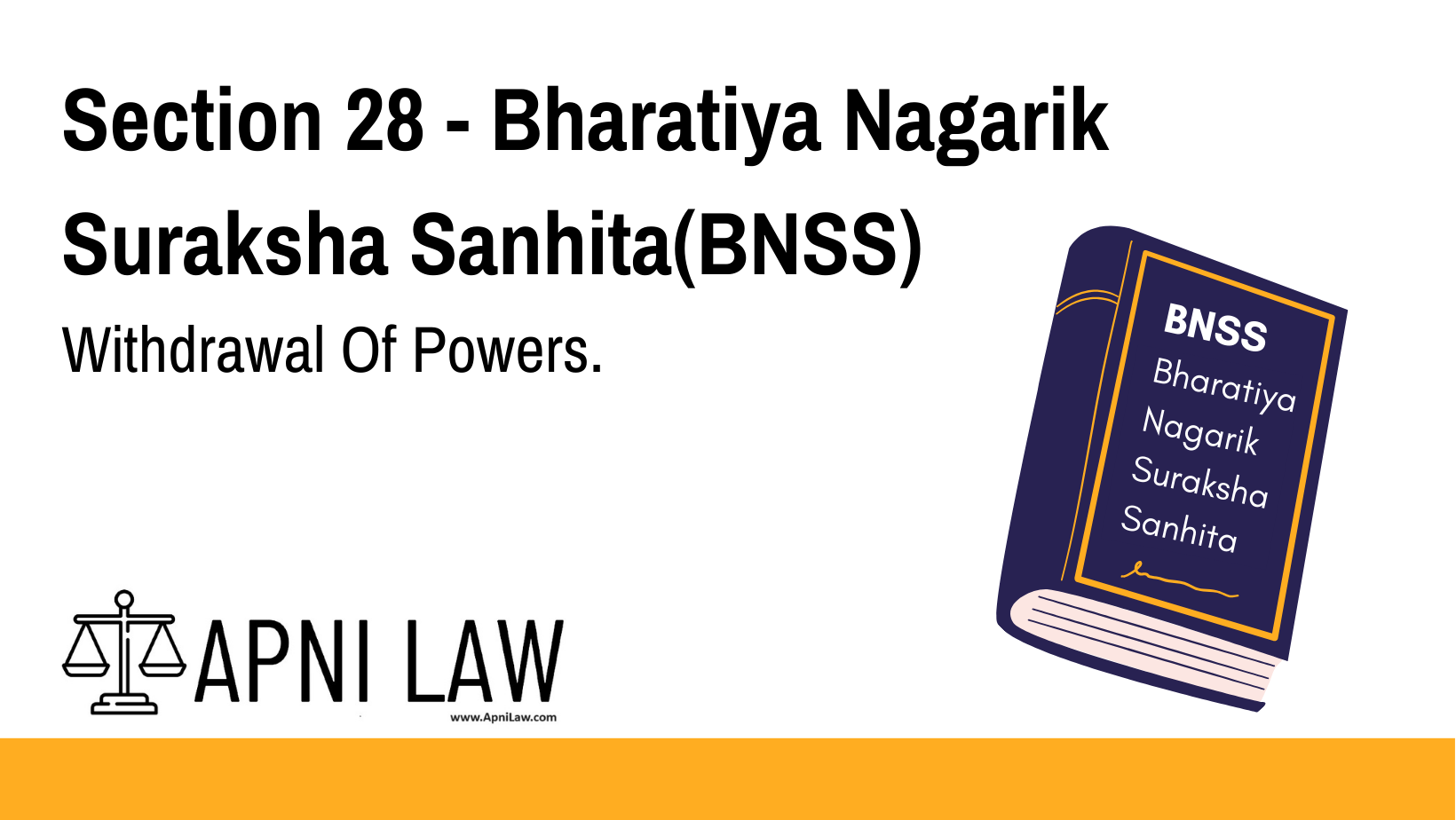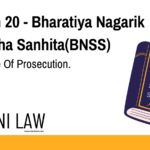Code
(1) The High Court or the State Government, as the case may be, may withdraw all or any of the powers conferred by it under this Sanhita on any person or by any officer subordinate to it.
(2) Any powers conferred by the Chief Judicial Magistrate or by the District Magistrate may be withdrawn by the respective Magistrate by whom such powers were conferred.
Explanation:
This section of the BNSS Code deals with the power of higher authorities to withdraw powers conferred upon subordinate officers or individuals.
- Subsection (1) grants the High Court or the State Government the authority to withdraw any powers granted by them under the BNSS to any person or officer under their jurisdiction.
- Subsection (2) similarly empowers the Chief Judicial Magistrate or the District Magistrate to withdraw any powers they have previously conferred upon subordinate officers.
Illustration:
Let’s say the District Magistrate grants a police officer the power to arrest individuals without a warrant in certain situations. Later, the District Magistrate, deeming it necessary, can withdraw this power from the officer.
Common Questions and Answers: on Withdrawal Of Powers
Q: What are the grounds for withdrawing powers?
A: The BNSS Code does not specifically list out the grounds. However, it can be assumed that the higher authorities would exercise this power. This includes situations where the person or officer is deemed unfit to hold those powers, has misused them. It also includes a situation where there is a change in circumstances requiring the withdrawal.
Q: Can a person or officer challenge the withdrawal of their powers?
A: It is possible to challenge the withdrawal of powers through legal means. Thid includes filing a writ petition, if the person or officer believes the withdrawal was unjustified or arbitrary.







